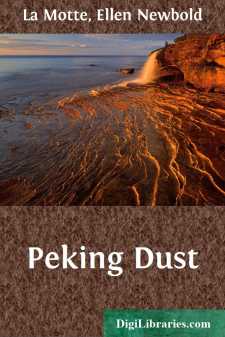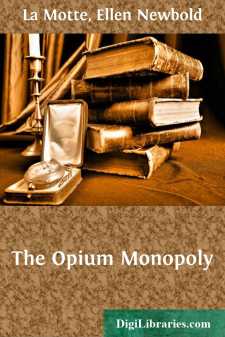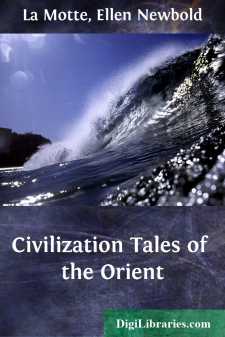Categories
- Antiques & Collectibles 13
- Architecture 36
- Art 48
- Bibles 22
- Biography & Autobiography 813
- Body, Mind & Spirit 141
- Business & Economics 28
- Children's Books 12
- Children's Fiction 9
- Computers 4
- Cooking 94
- Crafts & Hobbies 4
- Drama 346
- Education 46
- Family & Relationships 57
- Fiction 11826
- Games 19
- Gardening 17
- Health & Fitness 34
- History 1377
- House & Home 1
- Humor 147
- Juvenile Fiction 1873
- Juvenile Nonfiction 202
- Language Arts & Disciplines 88
- Law 16
- Literary Collections 686
- Literary Criticism 179
- Mathematics 13
- Medical 41
- Music 40
- Nature 179
- Non-Classifiable 1768
- Performing Arts 7
- Periodicals 1453
- Philosophy 64
- Photography 2
- Poetry 896
- Political Science 203
- Psychology 42
- Reference 154
- Religion 513
- Science 126
- Self-Help 83
- Social Science 81
- Sports & Recreation 34
- Study Aids 3
- Technology & Engineering 59
- Transportation 23
- Travel 463
- True Crime 29
Peking Dust
Description:
Excerpt
I
POOR OLD CHINA
When I came away last August, you said you wanted me to tell you about our travels, particularly about China. Like most Americans, you have a lurking sentimental feeling about China, a latent sympathy and interest based on colossal ignorance. Very well, I will write you as fully as I can. Two months ago my ignorance was fully as overwhelming as yours, but it is being rapidly dispelled. So I'll try to do the same for you, as you said I might. Rash of you, I call it.
I'll take it that you have just about heard that China is on the map, and occupies a big portion of it. You know that she has a ruler of some kind in place of the old empress dowager who died a few years ago. Come to think of it, the ruler is a president, and China is a republic. Vaguely you may remember that she became a republic about five years ago, after a revolution. Also, in the same vague way, you may have heard that the country is old and rich and peaceful, with about four hundred million inhabitants; and beyond that you do not go. Sufficient. I'll go no further, either.
After six weeks in Japan, we set out for Peking, going by way of Korea. On the boat from Kobe to Shimonoseki, passing through the famous Inland Sea of Japan,—which, by the way, reminds one of the eastern shore of Maryland,—we met a young Englishman returning to Shanghai. We three, being the only first-class passengers on the boat, naturally fell into conversation. He said he had been in the East for ten years, engaged in business in Shanghai, so we at once dashed into the subject of Oriental politics. Being quite ignorant of Eastern affairs, but having heard vaguely of certain phases of them, we asked if he could tell us the meaning of "sphere of influence." The Orient seems full of spheres of influence, particularly China.
"How do the European nations acquire these 'spheres of influence' in China?" I asked. "Do they ask the Chinese Government to give them to them?—to set apart certain territory, certain provinces, and give them commercial and trading rights to these areas?"
"Ask the Chinese Government?" repeated the young man, scornfully. "Ask the Chinese? I should say not! The European powers just arrange it among themselves, each decides what provinces it wants, agrees not to trespass upon the spheres of influence of one another, and then they just notify China."
"Just notify China?" I exclaimed. "You mean they don't consult China at all and find out whether she's willing or not? You mean they just decide the matter among themselves, partition out the country as they like, select such territory as they happen to fancy, and then just notify China?"
"That's the idea," he returned; "virtually that's all there is to it. Choose what they want and then just notify China."
"Dear me!" said I.
I'm glad we met that young man. I like things put simply, in words of one syllable, within range of the understanding. Moreover, incredible as it seems, what he told us is true. Oh, of course, as I've found out since, there are treaties and things to be signed after China has been notified....





